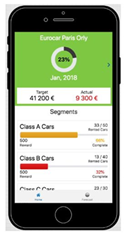Introduction
This article is a high level “architect” style series of 6 themes where we expose and discuss some of the best practices one should adopt when extending Oracle SaaS with Oracle VBCS. The article is rich with links to other Oracle blog articles and will be followed by a number of shorter and more detailed focused articles on technicalities of using VBCS for extending Oracle SaaS.
When choosing a technology to implement UI extensions for SaaS we are blessed with a number of options ranging from ADF Faces, a custom HTML5 framework, a toolkit like Oracle JET, and finally products like Oracle VBCS.
Oracle VBCS is the accumulation of a number of years effort by Oracle where we wanted to give our application developers the ability to quickly build high performance HTML5 user interfaces without having to write lots of code yet still have the flexibility to write code where needed.
VBCS helps bridge this gap by accelerating the building of the application’s infrastructure code, e.g. handling REST calls, page flows, etc, and letting the developer focus on what data is needed on the screen and the UI logic. At the same time VBCS is quite unique in that it allows you to dive into the [javascript] code itself so that we have the “If the tool can’t do it then click the <code> button and do it yourself in javascript” mantra.
VBCS is also Oracle Fusion SaaS aware so that it can “automagically” discover the business objects in your SaaS instance, display them, allow you to select and create VBCS artefacts based on SaaS objects. VBCS also optimizes the REST calls themselves at runtime and be pre-configured to do “single sign” on with minimal setup, this with many other features means VBSC is a natural choice for extending Oracle SaaS. Read the complete article here.
For regular information become a member in the Developer Partner Community please register here.
![]() Blog
Blog ![]() Twitter
Twitter ![]() LinkedIn
LinkedIn ![]() Facebook
Facebook ![]() Meetups
Meetups
Technorati Tags: PaaS,Cloud,Middleware Update,WebLogic, WebLogic

